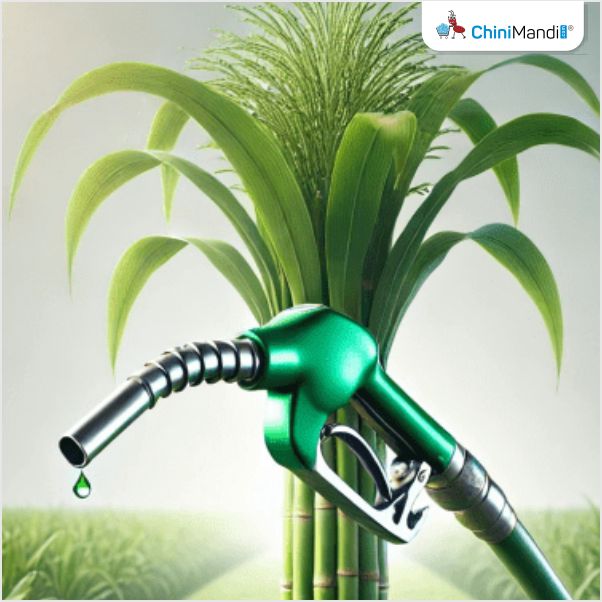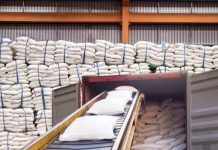The Indian Sugar & Bio-Energy Manufacturers Association (ISMA) has expressed deep concern that the drastic reduction in ethanol allocation to the sugar sector could lead to underutilization of distilleries, reduced sugar diversion, surplus stocks, and a buildup of cane arrears during the 2025–26 Sugar Season (SS).
Under the Ethanol Supply Year (ESY) 2025–26, only 289 crore litres of ethanol have been allocated from sugar-based feedstocks, accounting for just 28% of the total requirement, while grain-based ethanol has been allocated 72% (760 crore litres). This is despite the sugar industry having invested over ₹40,000 crore to create more than 900-crore-litre ethanol capacity, aligned with NITI Aayog’s 2021 Biofuel Roadmap of 2020-25, which projected a 55% (550 Cr L) contribution from the sugar sector towards achieving E20 blending by 2025–26.
“This imbalance may lead to underutilization of distilleries (below 50%), reduced sugar diversion (~34 LMT), and excess sugar stocks. Additionally, resulting cash flow constraints could delay payments to farmers and risk cane arrears accumulation, especially at a time when the sector already faces thin margins and high working capital requirements,” said Niraj Shirgaokar, Vice President of the ISMA, during the press conference.
While the Fair and Remunerative Price (FRP) of sugarcane has increased by 16.5%, from ₹305 to ₹355 per quintal since 2022–23, the ethanol procurement prices from sugarcane juice and B-heavy molasses have remained unchanged.
The cost of production of ethanol stands at ₹66.09 per litre from B-heavy molasses and ₹70.70 per litre from sugarcane juice. However, the current procurement prices of ₹60.73 and ₹65.61 per litre, respectively, result in an unviable pricing gap of around ₹5 per litre. This persistent shortfall is eroding profitability and rendering ethanol production from sugarcane-based feedstocks economically unsustainable. Consequently, it is adversely affecting sugar mills’ financial health and timely payments to cane farmers.
The MSP for sugar has remained unchanged at ₹31/kg since February 2019, while the FRP of sugarcane has increased from ₹275 to ₹355 per quintal (2025–26) — a rise of around 29%, which has led to an increase in the cost of production of sugar, now estimated at ₹40.24/kg, resulting in a significant cost–price misalignment.
At the current market trends, domestic sugar prices have already declined sharply and are expected to experience a further decline by December 2025 — falling well below the cost of production. This dip will severely impact mills’ financial liquidity, causing acute working capital shortfalls, delayed cane payments to farmers, mounting cane arrears in the 2025–26 sugar season, and escalating financial distress for both mills and farmers alike.
With expected surplus sugar production against domestic consumption of ~285 LMT, and only ~34 LMT sugar diversion towards ethanol, it will create a sugar glut in the domestic market, leading to depressed sugar prices, aggravating liquidity challenges for mills, and increasing the risk of cane arrears.
- Rebalance ethanol allocation in line with NITI Aayog Roadmap by ensuring at least a 50% share for sugar-based feedstocks to ensure parity and economically acceptable utilisation of existing capacity.
- Allocate 150 crore litre of Ethanol from Sugarcane Juice and BHM in tender for Cycle 2.
- Upward revision of ethanol procurement prices in line with the government-determined formula.
- Enhance ethanol blending beyond E20 to higher blending and introduce E100 fuel, supported by the rollout of Flex-Fuel Vehicles (FFVs) and Strong Hybrid Electric Vehicles (SHEVs).
- Revision of sugar MSP to align with the increased FRP and production costs.
- Early announcement of the sugar export policy for 2025–26 to help manage surplus stocks, plan raw sugar production, and maintain liquidity.












